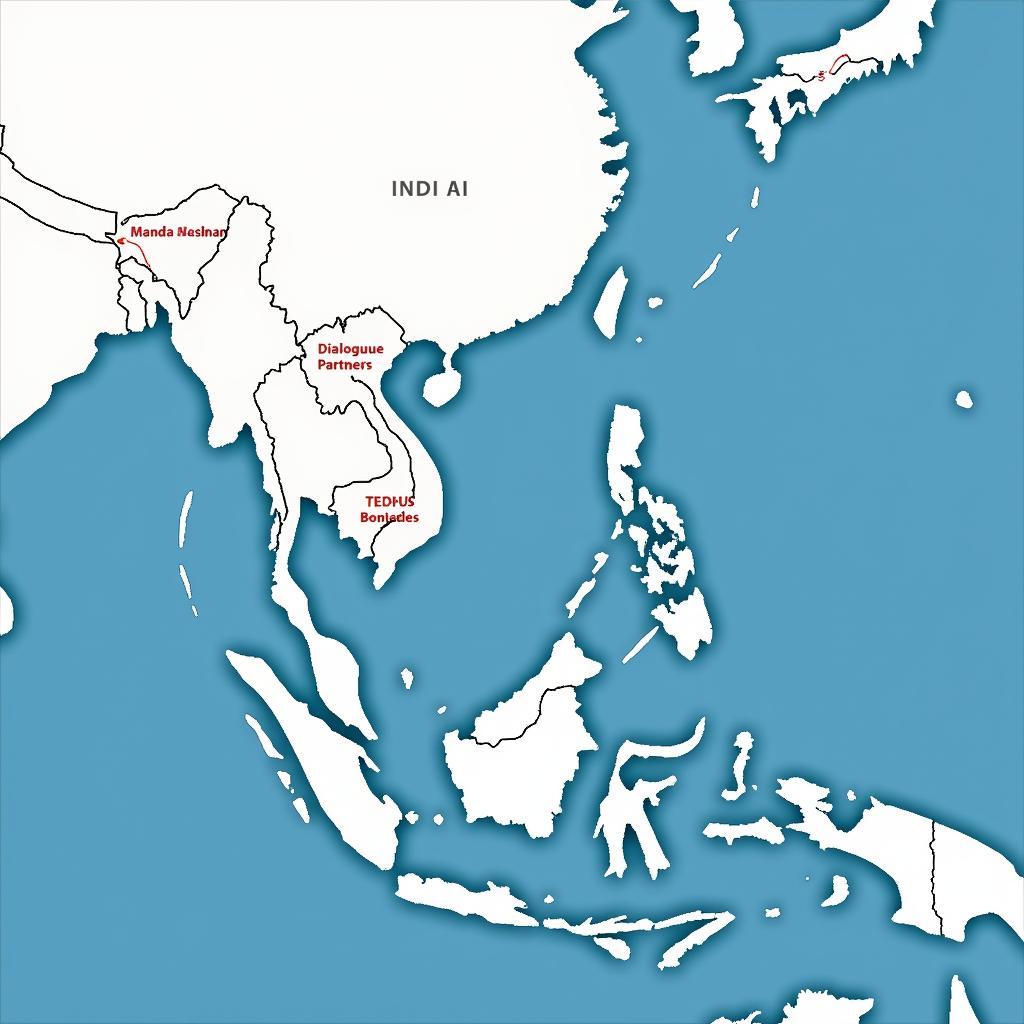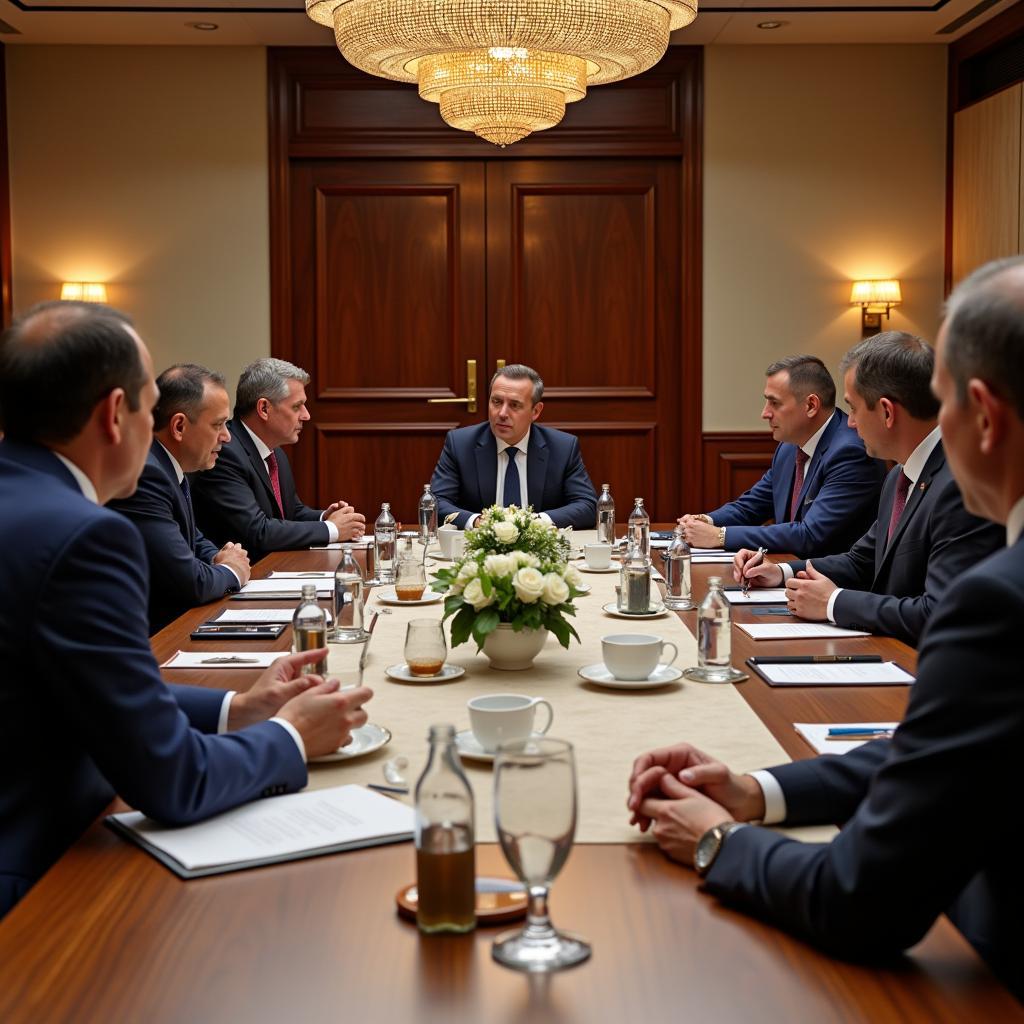The ASEAN Regional Forum (ARF) stands as a testament to the commitment of ASEAN and its dialogue partners to fostering peace and security in the Indo-Pacific. Comprising 27 countries, the ARF serves as a vital platform for dialogue and cooperation on political and security issues of common concern.
The Genesis and Evolution of the ARF
Established in 1994, the ARF emerged in a period of significant geopolitical transformation. The end of the Cold War brought both opportunities and uncertainties to the Asia-Pacific, necessitating a new regional security architecture. ASEAN, with its established principles of dialogue and consensus-building, took the initiative to create a forum where key players could engage in open and constructive discussions.
Initially focused on confidence-building measures, the ARF has gradually expanded its agenda to encompass a wider range of security challenges. These include maritime security, terrorism, transnational crime, and non-proliferation. The forum’s evolution reflects the dynamic nature of the security landscape and the growing interconnectedness of challenges facing the region.
Key Players in the ARF
The ARF brings together all ten ASEAN Member States alongside 17 Dialogue Partners. These partners represent major powers with vested interests in the Indo-Pacific, including China, the United States, Russia, Japan, and India.
 ASEAN Regional Forum Members
ASEAN Regional Forum Members
The diversity of the ARF’s membership underscores its inclusivity and its potential to bridge divides between countries with differing perspectives. The forum operates on the principle of consensus, ensuring that all voices are heard and that decisions are made collectively.
Addressing Contemporary Security Challenges
The ARF has played a crucial role in addressing pressing security issues facing the region. The forum’s emphasis on dialogue has facilitated communication and reduced tensions, contributing to a more stable and predictable regional order.
One of the ARF’s key achievements has been its contribution to the fight against terrorism. Recognizing the transnational nature of this threat, the forum has facilitated cooperation in areas such as intelligence sharing, law enforcement, and counter-terrorism financing.
Furthermore, the ARF has been instrumental in addressing maritime security concerns, particularly in the South China Sea. The forum provides a platform for dialogue on this sensitive issue, promoting adherence to international law, including the United Nations Convention on the Law of the Sea (UNCLOS).
 Dialogue on Maritime Security within the ARF framework
Dialogue on Maritime Security within the ARF framework
The Future of the ARF
As the security landscape continues to evolve, the ARF will need to adapt and enhance its effectiveness to remain relevant. There are calls for the forum to transition from confidence-building to preventive diplomacy, proactively addressing potential conflicts before they escalate.
Moreover, the ARF can further strengthen its role in non-traditional security areas such as cybersecurity, climate change, and pandemics. These issues transcend national boundaries and require collaborative action from all stakeholders.
Conclusion
The ASEAN Regional Forum stands as a vital pillar of the regional security architecture in the Indo-Pacific. Its commitment to dialogue, consensus-building, and practical cooperation has contributed significantly to peace and stability in the region. As the ARF navigates the complexities of the evolving security landscape, its role in fostering dialogue and cooperation among key players will become even more crucial in the years to come.
FAQ
1. What is the primary objective of the ASEAN Regional Forum?
The ARF aims to foster constructive dialogue and consultation on political and security issues of common interest, contributing to confidence-building and preventive diplomacy in the Asia-Pacific.
2. How does the ARF contribute to regional stability?
By providing a platform for open communication and cooperation, the ARF helps to manage tensions, build trust, and promote peaceful resolution of disputes among its diverse membership.
3. What are some key challenges facing the ARF in the future?
The ARF needs to adapt to the evolving security landscape, address non-traditional security threats effectively, and transition towards more proactive diplomacy to prevent conflicts from escalating.
4. How can I find more information about ASEAN-related topics?
ASEAN Bence is a valuable resource for in-depth information and analysis on ASEAN affairs.
5. Where can I access diverse perspectives on ASEAN?
ASEA Opiniones offers a platform for a wide range of views and opinions on ASEAN and its role in the region.
Have other questions about ASEAN and regional security? Reach out to our team for support:
Phone: 0369020373
Email: [email protected]
Address: Thon Ngoc Lien, Hiep Hoa, Bac Giang, Vietnam.
We are available 24/7 to assist you!


